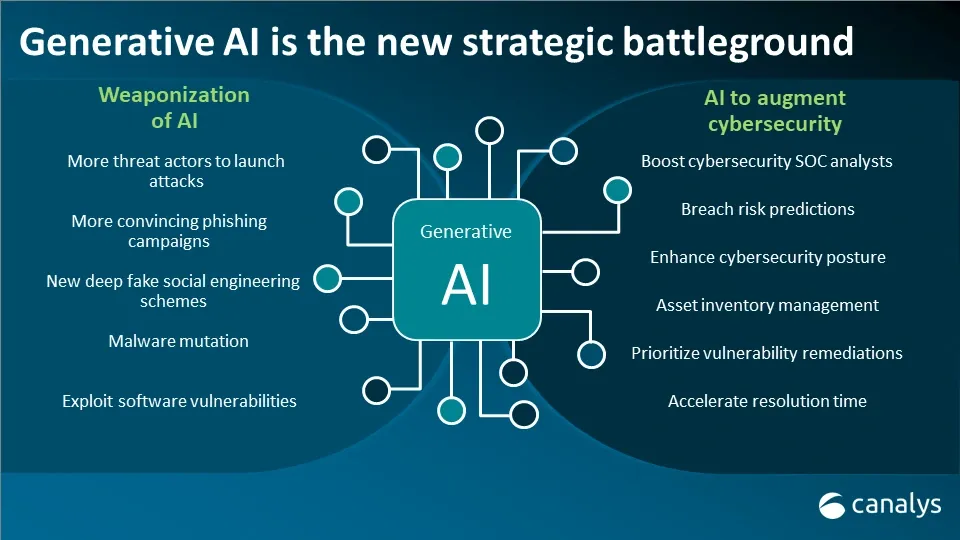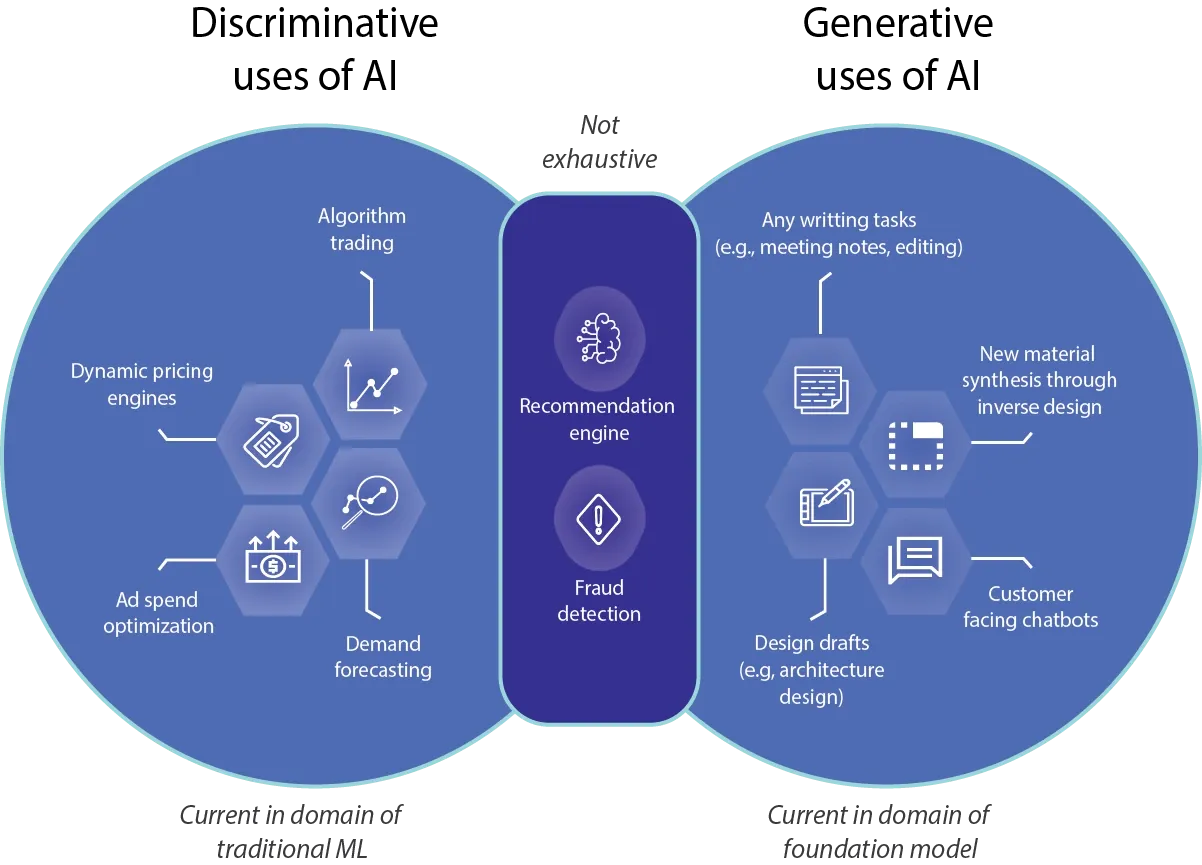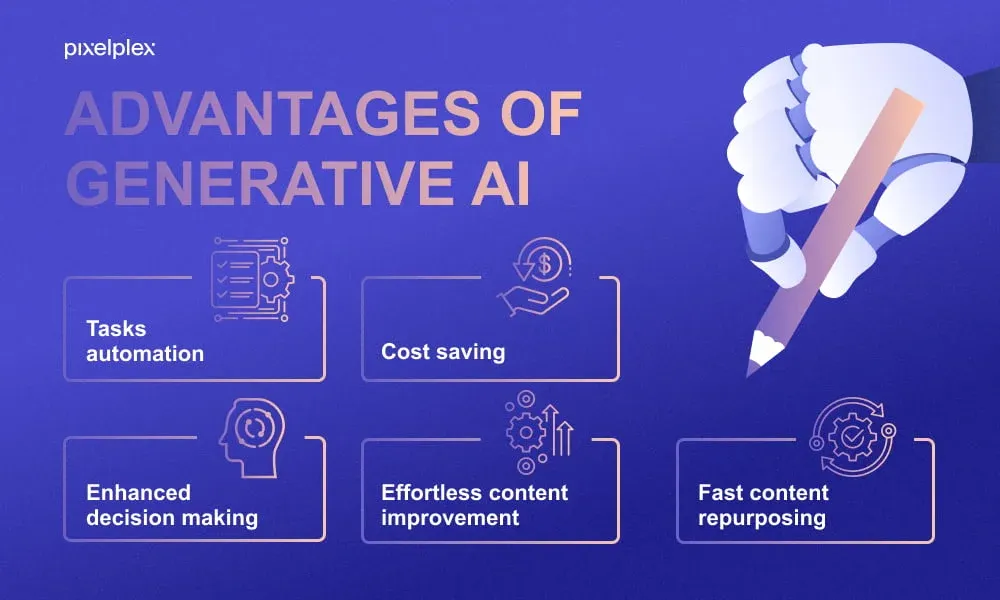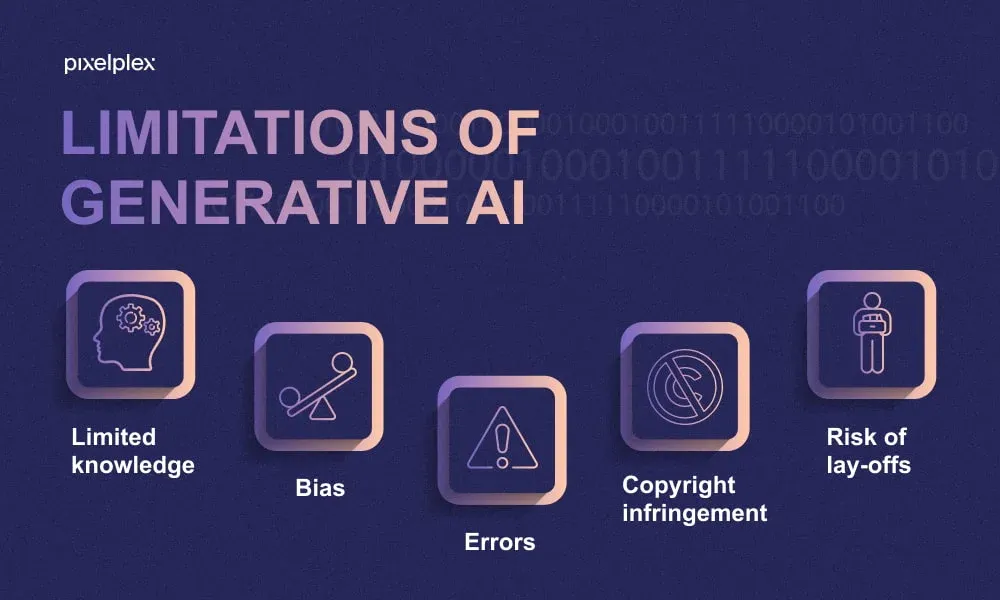Reshaping Education: Generative AI in Learning & Development
These days, you can't turn a corner without hearing about artificial intelligence. It's in our phones, automobiles, and even refrigerators, but what does it imply for you?
What can it do to make your life easier, more efficient, or simply better?
If you work in learning and development, the answer is 'most likely.'
The intelligence related to artificial intelligence (AI) has recently made considerable steps, with generative AI quickly becoming one of the most prominent subjects in the field of technology.
Generative AI, such as ChatGPT, can change various industries, including education. It potentially drives the sector into an increasingly technologically-heavy future with all the benefits and drawbacks involved.
The potential uses of generative AI in education are limitless. With personalized learning, content is only one of many possibilities.
A study by McKinsey found that generative AI could personalize learning for every student and reduce the cost of education by 20%.
Developing innovative products that use generative AI will enable educators to create more engaging and dynamic student learning experiences.
Let's see how it's changing the world.
What is Generative AI?
Generative AI is like having a digital Picasso. It's all about creating something new and original, not just following predefined patterns.
Unlike other types of AI that focus on tasks like image recognition or language translation, generative AI takes it a step further by generating fresh content.
Think of it as an AI friend who can create art, compose music, or even write stories!

Types of Generative AI Models and their Applications in Education
There are several types of generative AI models, each with its own set of strengths and applications.
Let's explore some of the popular ones and see how they can shape the future of education
Variational Autoencoders (VAEs)
VAEs are masters of data compression and synthesis. They learn the underlying patterns in large datasets and can generate new content based on that knowledge.
VAEs can create customized learning materials tailored to each student's needs in education, making personalized learning a breeze!
Generative Adversarial Networks (GANs)
GANs are like creative rivals. They consist of two parts: a generator and a discriminator. The generator tries to create realistic content, while the discriminator's role is to tell the real from the fake. This constant competition leads to astonishing results.
GANs can be used to create realistic virtual simulations interactive learning experiences, and even generate custom textbooks!
Recurrent Neural Networks (RNNs)
RNNs are perfect for generating sequential data, like music or text. They have a memory that helps them understand and predict patterns over time.
In education, RNNs can assist in creating interactive language learning apps, generating automated feedback for assignments, and even composing original music for multimedia projects.
Examples of Generative AI in Learning and Development
Generative AI is already making waves in education. Let's take a look at a few inspiring examples:

Chatbots as Virtual Tutors
AI-powered chatbots are revolutionizing the tutoring experience. They can engage in personalized conversations, answer questions, and guide students through their learning journey.
It's like having a tutor available 24/7, without scheduling conflicts or tiredness!
Content Creation with AI
Teachers and content creators can save hours using generative AI to generate educational resources.
From creating quizzes and worksheets to designing visually appealing presentations, generative AI tools can empower educators to focus on what matters – teaching!
Simulations for Experiential Learning
Generative AI allows students to immerse themselves in realistic simulations.
Whether it's a virtual science lab, a historical reenactment, or a business simulation, these experiences enhance learning by providing a hands-on, interactive environment.
Suggested Reading:
Benefits of Generative AI in Education
Now that we understand how generative AI works and its potential applications, let's delve into its educational benefits.

Personalization
Generative AI enables personalized learning experiences by catering to students' individual needs, learning pace, and interests.
It's like having a virtual tutor who knows exactly what you need to excel and adaptively adjusts the content to match your learning style.
Efficiency in Learning Material Creation
AI-generated content can save teachers countless hours on administrative tasks and content creation.
With generative AI, educators can focus on designing meaningful learning experiences and personalized guidance, knowing that the AI will handle the heavy lifting.
Engagement
Generative AI injects a dose of excitement into the learning process. From gamifying lessons to creating interactive simulations, it keeps students engaged and eager to explore.
Learning becomes an adventure that sparks curiosity and ignites a passion for knowledge.
Challenges and Risks of Using Generative AI in Education
As technology evolves, artificial intelligence (AI) has become a hot topic in education.
One aspect of AI that's been making waves is generative AI, which is essentially the ability of AI systems to create original content like essays, exam questions, and even entire textbooks.
While the potential benefits of generative AI in education are promising, it's important to consider the limitations, challenges, and risks of its use.
Privacy Concerns and Ethical Considerations
Whenever we talk about AI, privacy concerns are bound to come up.
With generative AI in education, there's the risk of sensitive student data being collected, stored, and potentially used in ways that violate privacy regulations.
Educational institutions should take extra precautions to ensure that student data remains confidential and only used for intended educational purposes.
Another ethical concern revolves around bias in generative AI.
Since AI systems learn from existing datasets, they can perpetuate biases and inequalities that already exist in society.
For example, if the AI system is trained on textbooks with biased information or stereotypes, it may unknowingly generate content that reinforces those biases.
Therefore, it's crucial to have human oversight and intervention to ensure that AI-generated content is fair, inclusive, and unbiased.
Technical Limitations and Challenges
While generative AI is an exciting technology, it comes with its own technical limitations and challenges. One limitation is the quality of the generated content.
AI systems may need help to generate content that matches the expertise and nuance of human-created content.
Human educators often bring their own experiences, insights, and real-world examples to teaching, which can be difficult for AI systems to replicate.
Additionally, generative AI requires many high-quality training data to perform effectively.
Obtaining and curating such data can be time-consuming and resource-intensive for educational institutions.
Furthermore, the algorithms used in generative AI are constantly evolving, so the training data and models must be updated regularly to ensure optimal performance.

The Future of Generative AI in Education
Despite the challenges and risks, generative AI holds immense potential for shaping the future of education and training.
Transforming Teaching and Learning
Generative AI can be a valuable tool for teachers by automating mundane tasks like grading exams and generating personalized student feedback.
This frees up more time for teachers to focus on individual student engagement and personalized instruction.
AI-generated content can also adapt to the unique learning needs of each student, providing them with personalized learning experiences.
Enhancing Accessibility and Inclusivity
Generative AI can transform content into different formats, making it more accessible for students with disabilities.
For example, it can convert text to speech, generate braille materials, or provide real-time translations.
This inclusive approach ensures that students with different learning styles and abilities can access educational content.
Unleashing Creativity and Innovation
Generative AI has the potential to unleash creativity and innovation in education. Students can use AI tools to collaborate, brainstorm, and create their AI-generated content.
For example, they can develop AI-powered chatbots to assist with answering questions or create simulations to enhance their understanding of complex concepts.
This hands-on experience with AI can empower students to participate actively in the digital world.
Further Innovation and Research
As generative AI advances, it opens up new avenues for innovation and research in education.
Researchers can explore the use of AI to personalize curriculum, create adaptive learning environments, and facilitate lifelong learning.
The possibilities are endless, and with continuous research and experimentation, we can expect to see exciting developments in generative AI in education.
Conclusion
Generative AI has the potential to transform the field of learning and development by providing new ways to automate content generation, personalize learning experiences, improve assessment and evaluation, simplify collaborative learning, and support instructor-led training.
Overall, generative AI has the potential to support educators and the EdTech sector in a variety of innovative and time-saving ways, changing the traditional classroom setting.
However, there is only profit with risk, and education stakeholders must be aware of potential downsides and issues associated with introducing generative AI technologies into schools.
Using the power of generative AI in learning and development will aid in creating more engaging, effective, and customized learning experiences for all.
Frequently Asked Questions (FAQs)
How can generative AI benefit educators and students?
Generative AI can assist educators in creating tailored lesson plans, quizzes, and exercises. It offers students personalized learning experiences, adapting to their strengths and weaknesses.
Are there ethical concerns with using generative AI in education?
Yes, ethical considerations include bias in content generation, data privacy, and ensuring fairness and transparency in AI-driven educational processes.
Can generative AI help with language learning and writing skills?
Generative AI tools can provide language learners with real-time feedback on their writing, aiding in grammar, style, and vocabulary improvement.
How does generative AI support accessibility in education?
Generative AI can convert text to speech and vice versa, making educational content accessible to students with disabilities and ensuring inclusivity.
Is generative AI suitable for creating course content for online learning platforms?
Yes, it can streamline content creation by generating modules, quizzes, and assignments, making it efficient for online course creators.


